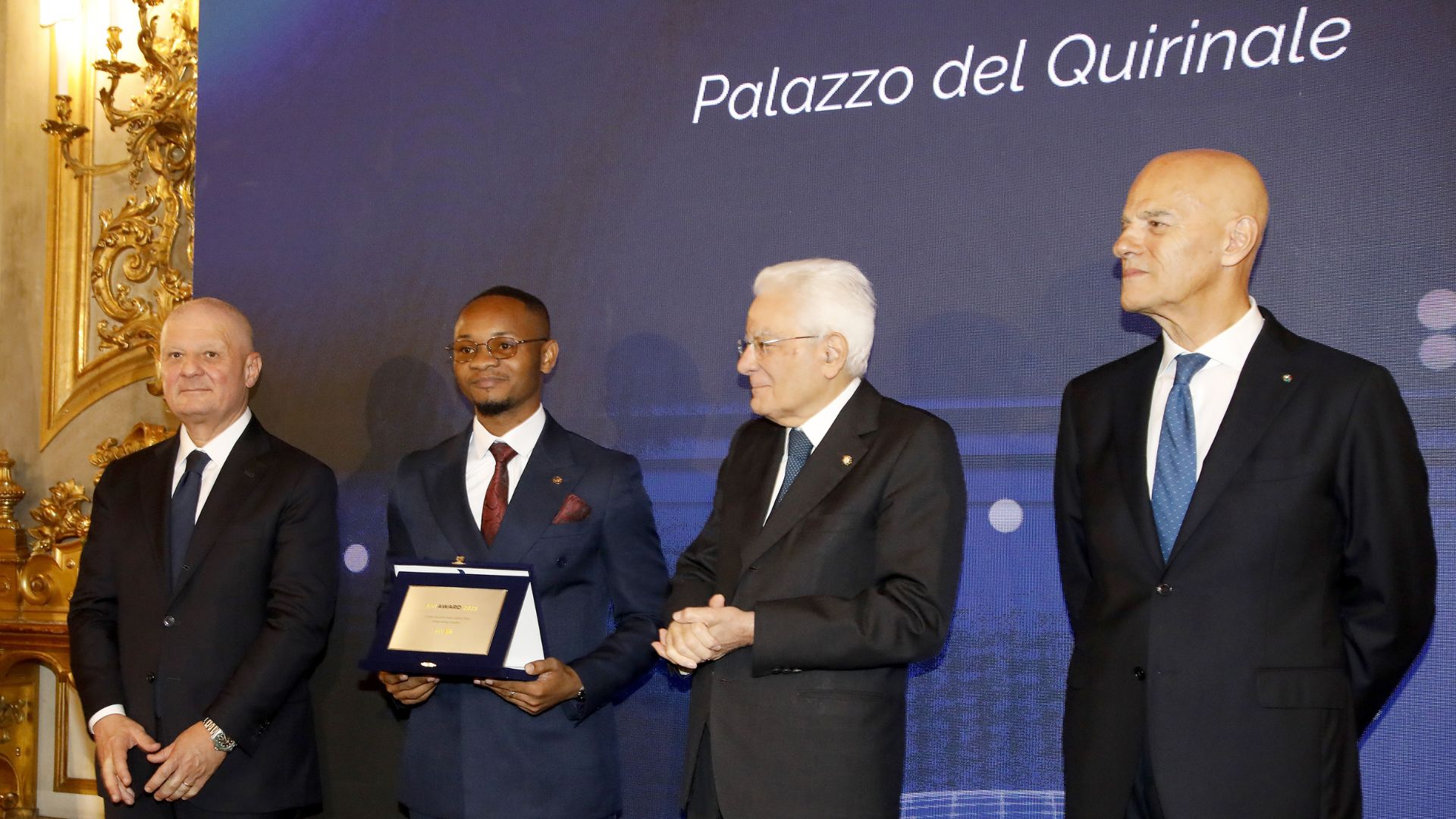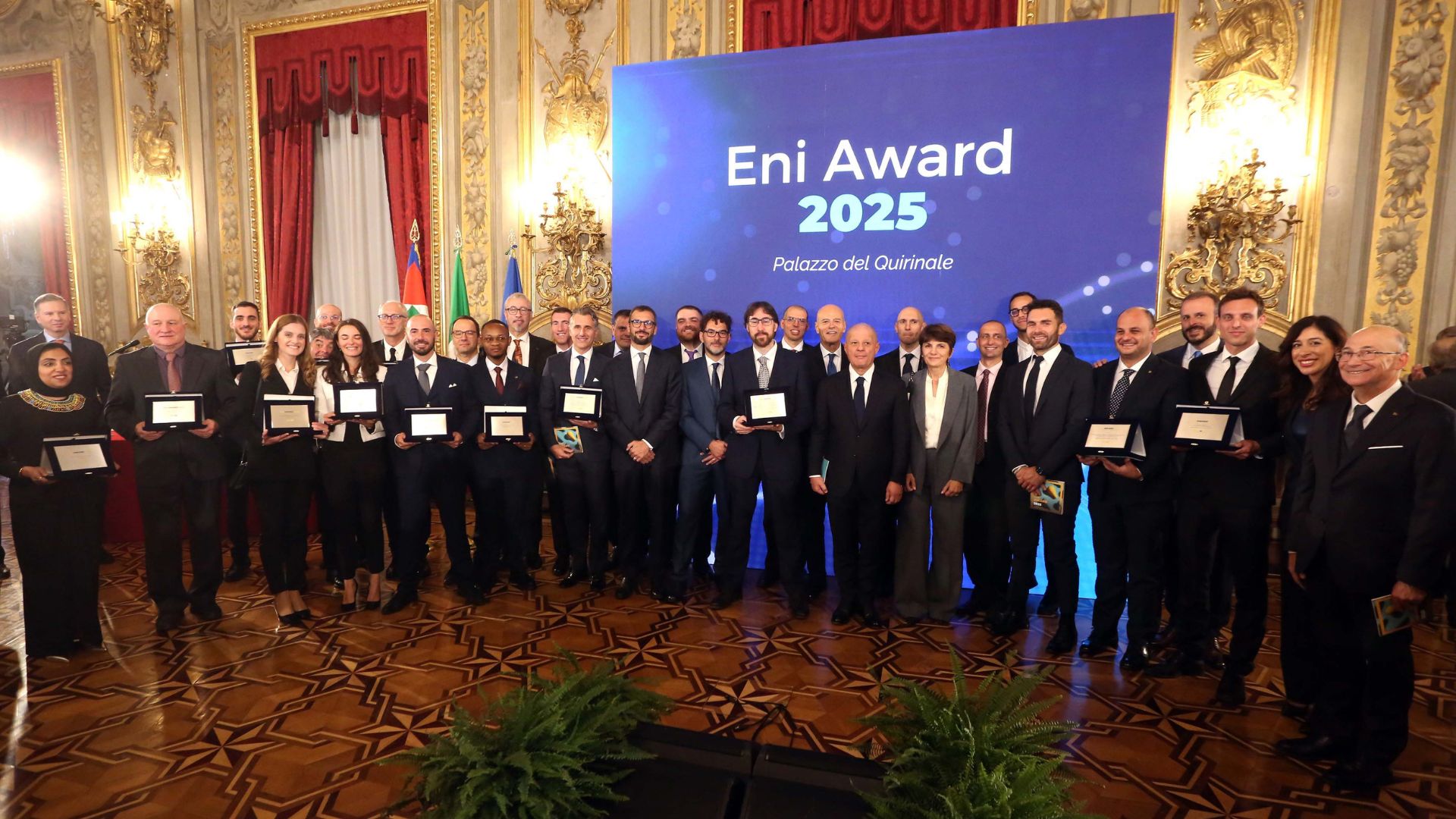Italian President Sergio Mattarella presented the 2025 Eni Award for Young Talents from Africa to Congolese junior researcher Asengo G. Mabia on 8 October in Rome. Mabia conducted a research visit at the University of Trieste, Italy, thanks to the TWAS-SISSA-Lincei Research Cooperation Visits Programme.

Launched in 2008, the Eni Award aims to encourage the new generations of researchers to develop strategies for a better use of energy sources, promoting science and technology applied to the environment. In 2017, the Award opened up to African scientific talents, including awards for research on sustainability and access to energy, in line with the UN Sustainable Development Goals.
The Eni Award recognized Mabia for his work, focused on developing a green process for converting agricultural by-products in Côte d’Ivoire, especially sugarcane molasses and cocoa pod husks, to polylactic acid, a biodegradable plastic widely used in packaging, medical devices, and eco-friendly plastics.
The TWAS-SISSA-Lincei programme that supported his research visit is funded by the Italian Ministry of Foreign Affairs and International Cooperation and the Italian Agency for Development Cooperation. It allows young scientists from the Least Developed Countries to spend three months in the Friuli Venezia Giulia region of Italy to carry out collaborative research or training internships in fields that cover the UN Sustainable Development Goals.
Mabia’s research is part of his ongoing PhD work at the Institut National Polytechnique Félix Houphouët-Boigny in Côte d’Ivoire, under the Africa Higher Education Centers of Excellence programme for waste valorization into high added-value products, a large-scale regional programme funded by the World Bank and the French Agency for Development in the higher education sector in Africa.

The research he carried out in Friuli Venezia Giulia took place at the University of Trieste, in the Department of Chemical and Pharmaceutical Sciences, under the guidance of organic chemist Lucia Gardossi.
“Establishing professional links with Italy has been an enriching experience. I connected with researchers and institutions at the forefront of sustainable innovation,” Mabia said. “I am sincerely grateful to the Italian Ministry of Foreign Affairs and International Cooperation for its support. Through initiatives of this kind, young African researchers not only develop scientific competence, but also learn the value of collaboration and global solidarity in building a sustainable future.”
Mabia’s scientific goal is to apply a circular economy model, in which people don’t simply take, make, and dispose of goods, but instead reuse, repair, recycle, and regenerate them so that nothing is wasted. To put this model into practice, he is concentrating on waste management and sanitation services in developing countries, working to ensure that agricultural and food industries operate in a more sustainable and efficient way.
“Fostering collaborations between Italy and African countries, especially in fields like sustainable technologies and products, is essential because Africa is rich in waste, biomass, and agricultural by-products that could be valorized, driving the growth of local industries and jobs, even in rural areas,” said Lucia Gardossi, head of the laboratory of applied and computational biocatalysis, where Mabia worked between 7 October 2024 and 3 January 2025.
“During his three-month visit to Italy, Mabia was exposed to a multidisciplinary environment that provided him with insights and inspiration for his future work. He gained greater awareness of the potential of his research, as well as the need to build South-North networks and cross-sector collaborations to achieve the ambitious goals he has set for his career,” added Gardossi.

A key moment of his Italian experience was his participation in ECOMONDO 2024, an annual international event in the fields of green and circular economy. There, Mabia met leading green economy figures, young entrepreneurs, scientists, and representatives of political institutions. The event also proved the importance of fostering dialogue among everyone involved to shape sustainable development strategies.
“My time in Italy was deeply formative,” Mabia said. “I gained valuable technological knowledge that now guides my research giving me a broader vision of what is possible through science.” In as little as three months of collaboration, he has already published one paper as first author, while a second one is in progress. In 2026, supported by the Eni Award, Mabia will return to Gardossi’s lab to continue his research.
Cristina Serra

